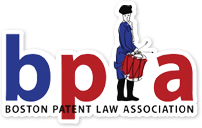
The BPLA Files Amicus Curiae Brief in
Wi-Fi One, LLC v. Broadcom Corp.
By
Kia Freeman
and Erik Belt
, McCarter & English, LLP
Is the Patent Trial and Appeal Board’s determination on the timeliness of a petition for inter partes review appealable? Until now, the answer has been “no.” But the Federal Circuit is now set to reconsider that question en banc. The BPLA recently filed an amicus brief, in Wi-Fi One, LLC v. Broadcom Corp., urging the Federal Circuit to hold that a determination by the Patent Trial and Appeal Board that an inter partes review was not time-barred under 35 U.S.C. § 315(b) is appealable if the Board addresses the issue in its final written decision.
In Achates Reference Publishing, Inc. v. Apple Inc., the Federal Circuit held that 35 U.S.C. § 314(a) insulated any timeliness determination from appeal. In Wi-Fi One, the Federal Circuit applied the Achates holding to deny review of the Board’s determination that the petitioner, Broadcom, was not time barred from requesting inter partes review of Wi-Fi’s patent. Thereafter, in Cuozzo Speed Techs., LLC v. Lee, the Supreme Court provided some guidance on the scope of review available for decisions in an inter partes review. In January 2017, the Federal Circuit vacated its decisions in Wi-Fi One, and granted Wi-Fi’s petition for rehearing en banc. The Federal Circuit invited briefing as to whether it should overrule Achates and hold that judicial review is available for a patent owner to challenge the Board’s determination that the petitioner satisfied the timeliness requirement of 35 U.S.C. § 315(b).
In its brief, the BPLA argued that the Board’s power to institute an inter partes review under § 314(a) is particular to the “petitioner.” There must be a showing that “there is a reasonable likelihood that the petitioner would prevail” on at least one of the challenged claims. Under § 315(b), the Board may not institute review if the “petitioner” (or its privy or real party in interest) filed its petition more than one year after being served with a complaint for infringement of the challenged patent. A time-barred petitioner has no cause of action. Unlike the institution decision, the Board’s final written decision under § 318(a) is a decision on the merits of the cause of action. Although § 314(d) prohibits review of the Board’s institution decision, § 319 permits review of § 318(a) final written decisions. Thus, to the extent that a final written decision addresses the time-bar issue (or other issues related to whether the petitioner has a cause of action), then that issue should be reviewable.











